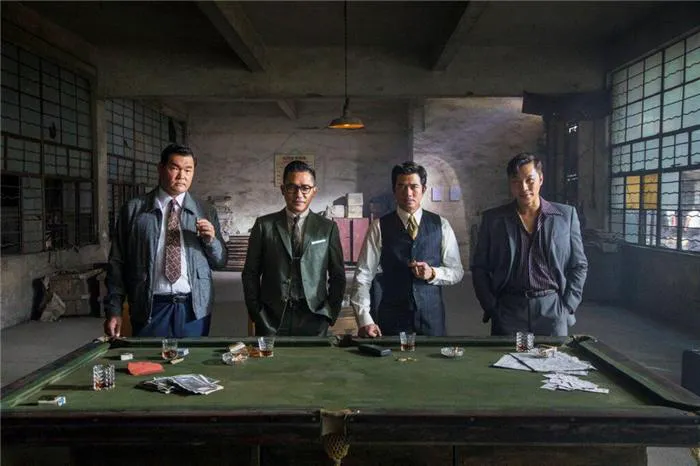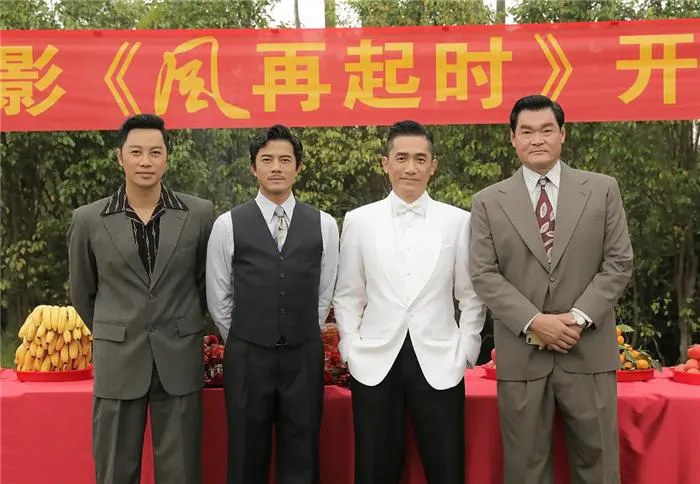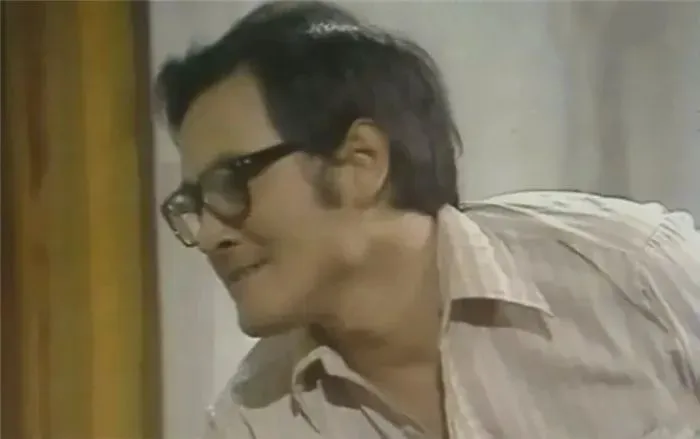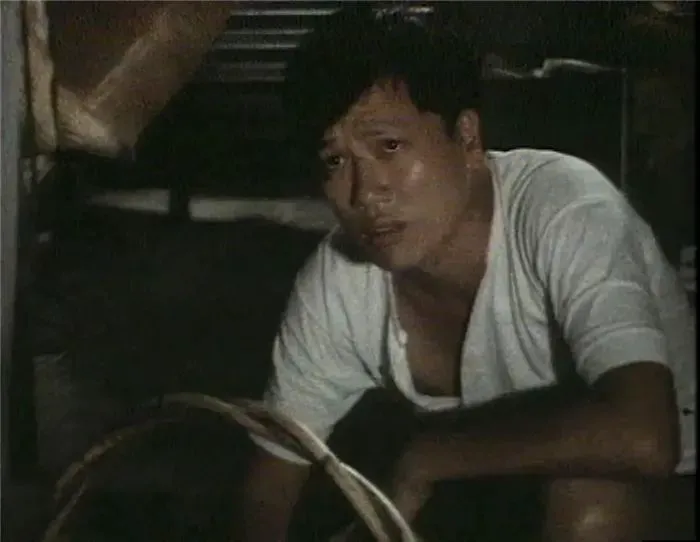Hong Kong International Film Festival to Open with “Where the Wind Rises” and “Warriors of Future”
The 46th Hong Kong International Film Festival has officially announced its opening films: “Where the Wind Rises” and “Warriors of Future.”
While Louis Koo’s long-awaited “Warriors of Future” needs little introduction, the real surprise is undoubtedly Philip Yung’s “Where the Wind Rises.”

It’s worth recalling that “Where the Wind Rises” was also selected as an opening film for the 45th Hong Kong International Film Festival, only to be canceled due to technical issues. Hopefully, this time it will take off without a hitch and avoid disappointing audiences again.
A Long-Awaited Premiere
“Where the Wind Rises” began filming in November 2017 and wrapped up in March 2018. Since then, it has been rumored to have release dates several times, only to be postponed each time. It even became “brothers in hardship” with Jingle Ma’s “Feng Lin Huo Shan.” Now, after four years of silence, it has finally emerged from the shadows and is set to premiere.

Originally titled “Global Wanted,” director Philip Yung explained the name change, stating that he was drawn to the implicit sense of an era passing with the wind, as well as the arrival of a new trend.
The director has grand ambitions, aiming to create an epic work that prompts reflection on the end of an old era. Reportedly, the first cut of the film was six hours long, which was then compressed to four hours, and finally to 140 minutes. It remains to be seen what the final runtime will be when it is presented to audiences.

Why is “Where the Wind Rises” So Highly Anticipated?
There are three main reasons why “Where the Wind Rises” is generating so much buzz:
Thematic Relevance
The stories of the “Four Kingpins” and the “Four Detectives” have been frequently depicted in Hong Kong cinema. It all started with the佳艺 Television’s “Chasing the Dragon” in 1976, where Liu Dan’s portrayal of Hu Yixiong was a veiled reference to Ng Sik-ho, making him the first generation of Crippled Ho in film and television.

Then came麗的 Television’s “The Brothers” in 1980, an 80-episode series primarily about the rise of the Ma brothers. Liu Jiang’s character, Song Bo, was a reference to Crippled Ho.

In 1991, the gangster genre exploded.麦当雄’s “To Be Number One” was a monumental achievement, a sweeping and epic gangster film. The rise and fall of Crippled Ho was both impressive and regrettable.
The success of “To Be Number One” ushered in a wave of gangster biopics. That same year,永盛 set their sights on the genre, with the Xiang brothers focusing on their “relative,” Lui Lok (Lee Rock).
“Lee Rock” was released in two parts. While it lacked the grandeur of “To Be Number One,” it portrayed the entrepreneurial history of Lee Rock. With the help of Uncle Shrimp and his father-in-law, Lee Rock rose from a small police officer to the Chief Detective, which was somewhat inspiring.
Wong Jing was just one of the producers of “Lee Rock,” but he didn’t miss the opportunity to make money. With the support of蔡永昌, one of the three giants of嘉禾 (the other two being Chow Man-wai and Ho Guan-chang), he founded晶艺 Film Production Company.
The company’s first production was “Sex and Curse,” starring Amy Yip, with supporting roles from Ng Man-tat and Qin Pei. Ray Lui also reprised his role as Crippled Ho.
That same year, Kent Cheng and Ray Lui also collaborated on another gangster film, “The Hong Kong Godfather,” which told the story of the Ma brothers’ rise. The plot was straightforward and realistic, with a strong emphasis on the brothers’ relationship. The line “I left a brother behind” was particularly moving.
In 1992 and 1993, there were many more, such as Andy Lau’s “Lord of East China Sea,” Kent Cheng and Ray Lui’s “Hero of Hong Kong 2,” Simon Yam and Danny Lee’s “Crime Story,” Leslie Cheung and Charles Heung’s “Arrest the Restless,” and even Wai Ka-fai’s “The Greed of Man” got in on the action, with Tsang Kong’s Lung Shing-pang and Liu Jiang’s Chow Kai-sang based on Lee Rock and Crippled Ho
The following years belonged to Wong Jing’s personal show, relentlessly pursuing the gangster genre, from “The H.K. Triad” in 1999 to “I Corrupt All Cops” in 2009 and “Chasing the Dragon” in 2017.
“Chasing the Dragon” helped Wong Jing regain some credibility, but it also made him more relentless in exploiting the IP, leading to “Chasing the Dragon II: Wild Wild Bunch,” “Chasing the Dragon: Master of Billion,” and “I Corrupt All Cops 2,” with rumors of “Chasing the Dragon 3” on the way.
Philip Yung’s Approach
Given the saturation of the “gangster” genre, why did Philip Yung choose to make another one?
He stated that his “Where the Wind Rises” differs from previous biopics in that it takes a fresh perspective, bringing audiences back to that controversial era.
On one hand, he hopes the film will have a grand scale, vision, and imposing presence. On the other hand, he also wants to capture the changing times, the legend of the Four Detectives who dominated the police force, only to retire due to the launch of a new anti-corruption era.
Most of the films mentioned above are commercially driven, while Philip Yung excels at using an artistic approach to filmmaking, which will hopefully result in a more poetic film.
The director will also delve into the history of the Four Detectives after their retirement, which previous works have rarely touched upon. For example, Lui Lok (Lee Rock) lived in Taipei after being wanted, occasionally traveling to Canada. He died in Canada in 2010 at the age of 89.
Lam Kong was very forward-thinking. He retired before the Independent Commission Against Corruption (ICAC) was established, fleeing abroad under the guise of traveling. He died of a heart attack in Thailand in 1989 at the age of 69.
Yan Hung fled to Thailand after being wanted. His current whereabouts are unknown, but he is presumed to be deceased.
Han Sum was arrested in Canada in 1976, but was later released and fled to Taiwan Province, where he died of illness in August 1999. Although he is dead, the ICAC’s pursuit of his assets continues. In 2006, the two sides reached a settlement, with Han Sum’s family agreeing to hand over 140 million yuan in assets.
Director Philip Yung has also stated that he loves that era and wants to make his own “Lee Rock and Crippled Ho,” as well as a love letter to Hong Kong cinema.
A Stellar Cast
Philip Yung’s confidence also comes from the powerful cast, featuring “six emperors and one empress.”
Tony Leung and Aaron Kwok, two Best Actor winners, face off for the first time. Who is more capable, Lam Kong and Lee Rock?
Eddie Kwan, a name that may be unfamiliar to some, won Best Actor for “Man on the Brink.” This time, he plays Lam Kong’s father.
Tse Kwan-ho, the most handsome Wine Sword Immortal, “The Mad Phoenix” unfortunately did not win Best Supporting Actor at the Hong Kong Film Awards this time.
In “Where the Wind Rises,” he will take on the role of Crippled Ho, which is highly anticipated.
Michael Hui, the king of comedy, just received the Lifetime Achievement Award at the Hong Kong Film Awards, a testament to his extraordinary talent.
In the film, he plays an ICAC commissioner, an opponent of the Four Detectives, likely a cunning and shrewd character.
Tai Bo, was not a Best Actor winner before filming, but he won one while waiting for the film to be released. His role is currently unknown, but he may be a powerful figure.
The “one empress” refers to Jessie Li, whose career was launched by director Philip Yung with “Port of Call,” which earned her the Best Actress award. It is only natural that she would reciprocate by participating in “Where the Wind Rises.”
In addition to Aaron Kwok, Eddie Kwan, Tai Bo, and Jessie Li, members of the “Port of Call” crew, including Michael Ning, Michael Chan, and Elaine Jin, also lend their support, which is a testament to the director’s strong personal charm.
Also, Chow Man-kin, who has been retired for many years, returns to play Han Sum, and Hong Kong villain actor Ho Kai-nam plays Tsang Sai-wing, based on Tsang启荣, the father of Eric Tsang.
Other cast members include Yammie Lam, Cheung Siu-fai, Maggie Cheung Ho-yee, Louis Cheung, Ron Ng, and Otto Wong.
Of course, we must not forget to introduce the female lead, Du Juan, who plays Lee Rock’s wife, Choi Zhen, a ruthless character who helps Lee Rock and Lam Kong become “dual hero detectives.”
Du Juan is a model who has worked with Tony Leung in “See You Tomorrow” and “Europe Raiders.” My personal impression of her remains Su Mei in “American Dreams in China,” with her unique fresh and indifferent temperament.